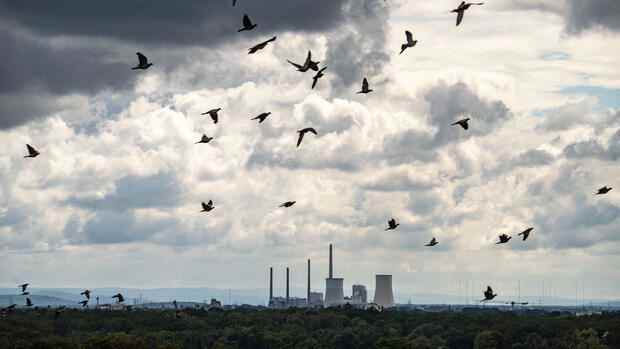Companies exploit weaknesses in the emissions trading system.
(Photo: dpa)
Dusseldorf In theory, the model of European emissions trading makes sense to everyone: Companies that are particularly strong in CO2 have to offset their carbon dioxide emissions with certificates. But for years the price for CO2 certificates has been around five euros per ton. The system was considered to have failed.
The price of CO2 has finally been rising since 2018. While it was below 16 euros in March 2020, it is now higher than ever at around 50 euros per ton. This is politically wanted, so the price will continue to rise. So anyone who blows carbon dioxide into the atmosphere is finally being asked to pay. In theory.
Because the “indulgence trade” does not seem to be in reality: because corporations like RWE, which are among the biggest polluters in the EU, covered themselves extensively with CO2 rights years ago. Now that the prices are high, the coal company can sit back and relax and enjoy the show. The incentive to emit less CO2 is fizzling out. And not just for RWE. Other energy groups, hedge funds and companies with high emissions have also secured themselves early on.
The companies should actually be congratulated on this clever move. You didn’t act illegally, after all. Politics, on the other hand, has made an unparalleled mistake. After all, emissions trading is one of the most important instruments on the way to climate neutrality in the Union. An instrument, the effect of which is likely to bypass many large CO2 emitters at least for the next ten years.
Top jobs of the day
Find the best jobs now and
be notified by email.
Emissions trading must be more strictly regulated
The years up to 2030 are decisive for the conversion to a climate-neutral economy. Many companies are already running late with the switch from fossil fuels to green energies. If there is not even the incentive to make the business sustainable sooner, that is not only bad for the climate, but also for the economy.
The European Union must quickly regulate the emissions trading market much more strictly and set a maximum number of certificates that a company can buy in a certain period of time. The fact that a coal company can largely avoid the steering effect of emissions trading at low prices by 2030 makes emissions trading ridiculous. Such long-term hedges should not even be allowed.
One can only hope that Germany does not make the same mistake as the EU. The national CO2 price is still 25 euros per ton. So if you stock up now before the price climbs to 55 euros and even higher, you could get away with it cheaply. At least in the short term. Because in the end, trickery doesn’t help anyone.
More: Coal business worth billions: Why RWE is even making money from rising CO2 prices.
